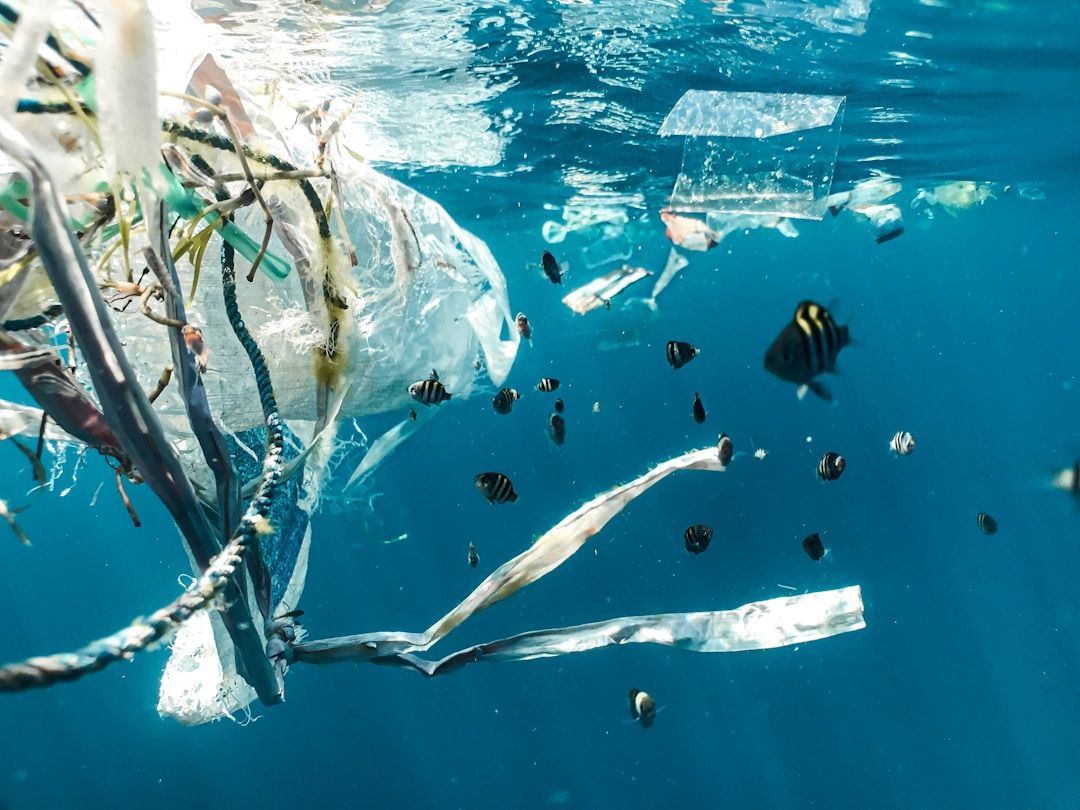
Fifth Week of Easter
Creation Care Controversies
Faithful, reasonable Catholics of good will sometimes disagree on how we ought to care for creation. This is necessarily a political topic, since it involves not only personal actions but also public policy. It is also a topic for scientific inquiry, and people disagree about what the observations of scientists mean and how they should guide lawmakers. The Church does not have dogmatic teachings on specific environmental issues (e.g. climate change, fossil fuel usage, plastic pollution, habitat destruction, etc.) or what we ought to do about them. However, she provides us with principles based on Sacred Scripture and Tradition that should guide our thoughts and actions. Here's what the Catechism has to say under the heading Respect for the integrity of creation (2415-2418):
The seventh commandment [You shall not steal] enjoins respect for the integrity of creation. Animals, like plants and inanimate beings, are by nature destined for the common good of past, present, and future humanity. Use of the mineral, vegetable, and animal resources of the universe cannot be divorced from respect for moral imperatives. Man's dominion over inanimate and other living beings granted by the Creator is not absolute; it is limited by concern for the quality of life of his neighbor, including generations to come; it requires a religious respect for the integrity of creation.
The seventh commandment [You shall not steal] enjoins respect for the integrity of creation. Animals, like plants and inanimate beings, are by nature destined for the common good of past, present, and future humanity. Use of the mineral, vegetable, and animal resources of the universe cannot be divorced from respect for moral imperatives. Man's dominion over inanimate and other living beings granted by the Creator is not absolute; it is limited by concern for the quality of life of his neighbor, including generations to come; it requires a religious respect for the integrity of creation.

Animals are God's creatures. He surrounds them with his providential care. By their mere existence they bless him and give him glory. Thus men owe them kindness. We should recall the gentleness with which saints like St. Francis of Assisi or St. Philip Neri treated animals.
God entrusted animals to the stewardship of those whom he created in his own image. Hence it is legitimate to use animals for food and clothing. They may be domesticated to help man in his work and leisure. Medical and scientific experimentation on animals is a morally acceptable practice if it remains within reasonable limits and contributes to caring for or saving human lives.
It is contrary to human dignity to cause animals to suffer or die needlessly. It is likewise unworthy to spend money on them that should as a priority go to the relief of human misery. One can love animals; one should not direct to them the affection due only to persons.
God entrusted animals to the stewardship of those whom he created in his own image. Hence it is legitimate to use animals for food and clothing. They may be domesticated to help man in his work and leisure. Medical and scientific experimentation on animals is a morally acceptable practice if it remains within reasonable limits and contributes to caring for or saving human lives.
It is contrary to human dignity to cause animals to suffer or die needlessly. It is likewise unworthy to spend money on them that should as a priority go to the relief of human misery. One can love animals; one should not direct to them the affection due only to persons.

We can distill a few general principles from these Catechism paragraphs:
If we all adhere to these principles, opinions will still differ on creation care controversies, but at least we will have some common ground. We will also be drawn back to what all of the recent popes have emphasized about creation care: it must serve the needs of mankind, especially the poor, vulnerable, and marginalized.
- Creation exists for man's benefit.
- The various creatures are also good in their own right.
- Mankind has the right to use creation.
- We must respect creation and not exploit it.
- First and foremost, we must be concerned for the good of mankind, present and future.
If we all adhere to these principles, opinions will still differ on creation care controversies, but at least we will have some common ground. We will also be drawn back to what all of the recent popes have emphasized about creation care: it must serve the needs of mankind, especially the poor, vulnerable, and marginalized.

Whatever opinions you have on environmental issues, the Church's teachings should serve as an occasion to examine your conscience. As you live your everyday life, and when you vote or engage in politics in other ways, how can you show respect for the integrity of creation? How can you uphold human dignity? The answers to these questions will vary based on your circumstances and the conclusions you come to based on faith and reason, but we can all do our part. In the next post, we'll look at ways to pray and act to promote peace with creation.
Grant, O Lord, that we may begin with holy fasting this campaign of Christian service, so that, as we take up battle against spiritual evils, we may be armed with weapons of self-restraint.
This collect prayer begins the Mass for Ash Wednesday, the first day of Lent. Jesus is calling us to "take up battle against spiritual evils." We'll explore fasting itself in a few weeks; during the week of Ash Wednesday, we're going to dig into an important set of weapons the Lord gives us to fight evil: sacramentals.
What's a sacramental? Well, if you attend Mass on Ash Wednesday, you're probably going to receive one on your forehead.
This collect prayer begins the Mass for Ash Wednesday, the first day of Lent. Jesus is calling us to "take up battle against spiritual evils." We'll explore fasting itself in a few weeks; during the week of Ash Wednesday, we're going to dig into an important set of weapons the Lord gives us to fight evil: sacramentals.
What's a sacramental? Well, if you attend Mass on Ash Wednesday, you're probably going to receive one on your forehead.

A Ministry of Our Lady of the Lake Catholic Church
480 152nd Avenue, Holland, MI 49424
lanecatholic@oll.org
Privacy Policy and Terms of Use
Copyright © 2024